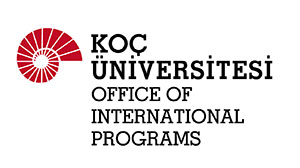There are various ways to be a UNIC student.
Koç students can spend exchange semesters or shorter study and research stays at UNIC partner universities, depending on their degree programmes. The options will be further expanded as the project goes along through blended learning formats, summer and winter schools and city labs, as well as joint degree programmes. Financial support for the exchanges is provided through Erasmus+ scholarships and other funding programmes within UNIC.
To follow the opportunities offered by UNIC Partners apart from Erasmus+ Student mobility, please visit: Opportunities
Please click on the university names to see detailed information about the partner universities such as departments available for exchange, quota etc.
- Erasmus University Rotterdam (Rotterdam, NL)
- Ruhr University of Bochum (RUB, GER)
- University of Deusto (Bilbao, ESP)
- University of Liège (BEL)
- University of Oulu (FIN)
- University of Zagreb (Zagreb, CRO)
- University College Cork (Cork, IRL) (No exchange agreement yet)
1- Physical Exchange
The Physical Exchange as the most-known exchange type means studying abroad for one or two semesters in one of the partner universities.
For more information about the physical exchange (i.e. rules-regulations-requirements, grant, application deadlines, etc.), please visit here.
2- Virtual Exchange
Virtual Exchange is a setting for learning and teaching that is structured to enable cooperative international and intercultural learning as a regular part of university programs, that is to say embedded in regular teaching activities.
It is realized by teachers interested in it, in consultation with their program coordinators and/or their Faculties. Each teacher teaches a regular course at their own university. Virtual Exchange is supported by technologies that allow the communication and cooperation of people at geographically different places (O’Dowd 2020, 478). It is based upon the co-designing of learning and teaching settings by two (or more) teachers from different universities.
Virtual Exchange aims at uniting students from different universities in collaborative tasks and supporting them in the discussion of specific topics, the exchange of ideas, or the joint generation of a product and its presentation. An explicit or implicit element of Virtual Exchange is the students’ reflection about their experiences in the intercultural collaboration (Helm 2018, 2; Baroni et al. 2019,4). Elements of Virtual Exchange can shape a course over an entire semester or enrich only particular parts of it. Students acquire credit points at their home university, as they are participating in a course that is part of their regular study program in their home university.
In order to follow opportunities of Virtual Exchange within UNIC Network, please follow the announcements shared with students via e-mail/KU Daily/etc.
3- Virtual Mobility
Virtual Mobility is a format of international exchange that is supported by digital communication tools. With regard to regular course work, students join courses and lectures at other universities virtually, while they are awarded credit points at their home universities (Boaretto et al. 2013, 7-8; Rajagopal et al. 2020, 2–3). In contrast to Virtual Exchange, Virtual Mobility requires neither specially co-designed international collaborative learning and teaching, nor deeper reflections about intercultural learning. It includes attending courses at a university that are not specially designed for international participants and require students to make special arrangements to ensure recognition and credits at their home universities (Boaretto et al. 2013, 16).
The course lists for virtual mobility offered by UNIC partners can be accessed here (TBA).
4- Blended Mobility
Blended mobility is a hybrid format which combines physical mobility with a virtual component. Blended mobility enables institutions to offer more flexible mobility formats and further enhance the learning outcomes and impact of physical mobility. Since not all UNIC universities offer this option as of yet, please contact Ms. Tuğba Güven (tguven@ku.edu.tr) for more information.
Students who are placed at UNIC universities will be eligible for the Erasmus+ grant. For more information about the grant and grant procedures & rules, please visit here.
In addition to Erasmus+ grant, UNIC provides additional financial contribution for the students who will study at one of UNIC partners and use train to travel to the host destination. Students who will use train, will be eligible for applying for UNIC Train Instead of Plane (TIP) Scheme.
What is UNIC Train Instead of Plane (TIP) Scheme?
UNIC promotes green mobility to keep the ecological footprint of our European University as small as possible. To set positive examples, UNIC will offer a Train Instead of Plane (TIP) grant scheme for students who commit to travelling by train (for distances over 350km). UNIC provide 15 grants per year for students who commit to traveling by train to take part in exchanges, seminars or other credit-awarding activities and other activities enabling networking between UNIC students. By traveling by train instead of plane, you are not only helping the environment, you also get the opportunity to visit other countries and cities on the way!
The TIP Scheme will involve grants of €185 which equals the costs of an Interrail ticket for 3 days per month. Grant applications will first be selected (to see whether the train offers a sustainable alternative and fits the >350km rule) and then awarded in a lottery.
Application is now open for students for the upcoming summer period and the wintersemester 2022/23.
Please send an email application to the International Office at RuhrUniversität Bochum (laura.schiffmann@uv.rub.de) with the following attachments until
May 1, 2022, or June 15, 2022 (depending on when you intend to travel):
• Scanned copy of the confirmation of your mobility (e.g., an email stating your participation)
• Current proof of enrolment (e.g., a confirmation of enrolment or a scanned copy of your student ID)
Please visit Application and Selection Calendar for Erasmus+ Study & Internship Programs’ application dates.
For any inquiries regarding exchange programs, please open a track-it by sending an e-mail to unicmobility@ku.edu.tr or open a track-it via https://trackit.ku.edu.tr/
Please always copy Ms. Tuğba Güven (tguven@ku.edu.tr) to your inquiries.
